Mariama was seated a short distance away, gazing out into the vendek cell. Tchicaya said, "Do you want to tell me what you’re doing?"
She turned to him, frowning slightly. "Just rearranging a few things internally. I didn’t realize I had so little privacy."
"I own this whole setup," he said. "You knew that when you came into it."
Mariama spread her arms. "Fine. Rummage through my memories; see if I care."
Tchicaya sat up on the edge of the bed. "What were you trying to expel into the environment?" At the border of the simulated Qusp in which her mind was cocooned, he’d replaced some of the more arcane facilities of the standard hardware — things she’d have no good reason to want to use, under the circumstances — with fakes that merely rang alarm bells. It had been a last-minute decision; the toolkit would have happily simulated the Qusp in its entirety, as the simplest means of guaranteeing that everything worked smoothly when it was piped through.
"Nothing," she said. "It was a mistake. I didn’t even realize you’d put me in a cage, so I brshed against the bars by accident." She waved a hand at him irritably. "Go back to sleep."
He rose to his feet. "Are you going to tell me, or am I going to have to look for myself?" In an ordinary Qusp, the owner of the hardware could freeze the whole program and inspect its state at leisure. But the quantum gates here were implemented at too low a level; there was no room for that approach. All he could do was send in a swarm of utility algorithms to search for anything suspicious, while shuffling her working mind aside. That would do no lasting damage, but he had no idea how she would experience it. It could be extremely unpleasant.
Mariama regarded him calmly. "You do whatever you think you have to. I’ve already been flayed once."
Tchicaya hesitated. He did not want to hurt her, and if he was wrong, he’d never be able to look her in the eye again. There had to be another way to call her bluff.
"There’s no need," he said. "I know exactly what you were trying to do." He wasn’t certain of anything, but of all the possibilities he could imagine, one stood out sharply.
"Really? Do you want to enlighten me?"
"You brought in a stock of qubits entangled with the near side. You had to get rid of them now, or they would have shown up tomorrow when we prepared the ship." Anything that interacted with an entangled qubit would have its phase irretrievably scrambled. To a pure quantum system they’d be poison. They’d have to be carefully isolated, locked away somewhere inside her mind.
"You’re right," she admitted. The expression on her face barely changed, as if this amounted to a minor clarification of her original story. "But I wasn’t trying to use them. I was trying to get rid of them."
"Why don’t you use them right now? Kill us both, right now?" However many she was carrying, she could not have imagined they’d be enough to do real harm to the far side. So the poison could only have had one target.
"I don’t want to do that, Tchicaya. I want to go with you. Deeper in. As far as we can."
" Why ?" Why had she dragged him down here at all? To give his version at the border an excuse to give up? Once he was also deep in the far side, battling the Planck worms like a valiant Lilliputian, it would be far easier to feel that he’d done all he could.
"To see what’s there," she said. "To help protect it, if it’s worth it."
"And help destroy it, if it isn’t?"
"I never lied about that," she insisted. "I never told you that I’d fight for some exotic wasteland, over the lives of real people."
That was true. She’d told him exactly what she believed, and he’d still wanted her beside him.
Tchicaya sagged to his knees. He had the means to kill her, or to leave her behind for the Planck worms. The ship’s processor would do whatever he asked. But nothing she had done was unforgivable. In her place, fighting for the same stakes, he would have lied, too, armed himself, too. How could he accuse her of betraying anything? For all he knew, if they’d taken different turns the last time they’d parted, they might have ended up in each other’s shoes.
She walked up to him and cradled his head in her arms. "I’ll get rid of them now," she said. "Will you let me do that?"
Tchicaya nodded. She took him by the hands and lifted him up. He constucted a safe route through the processor, and she ejected the tainted qubits, forming a tiny bubble of classical physics in the vendeks' quantum sea.
The toolkit completed its preparations for the Sarumpaet 's second launch. In principle, this was just another quantum computation, no different from the commonplace operation of turning a string of zeros into a superposition of every possible binary number of the same length. Treating the entire ship as an operand, though, meant expanding the infrastructure that performed the computation far beyond the original hull, wrapping the Sarumpaet in a second computer. This processor would rotate the part of the ship’s state vector that described the propulsion system, giving it a small component in each of more than a quadrillion orthogonal directions. Then it would release the resulting superposition into the depths of the far side, and wait for the reply that would enable it to erase all its failures.
The scape made no attempt to portray the actual machinery in which they were embedded; an opaque shield moved into place around the hull, representing the fact that they’d ceased to exchange information with their surroundings.
The toolkit began a countdown from twenty.
"Give me liberty, and/or death," Mariama quipped.
Tchicaya said, "I’ll be happier when we can drop the and ." He was more afraid of the possibility of a single success, diluted a quadrillion-fold, than he was of universal failure. "I don’t know if I should wish you a peaceful local death. Does this count, or doesn’t it?"
"Only if none of the strategies work."
"Then I won’t say anything."
The toolkit said, "Zero."
Tchicaya looked down through the panes in the floor into a borderless expanse of pale brightness, stretching out beneath the Sarumpaet like an inverted sky.
He turned to Mariama, relieved but confused. "That’s it? It’s over already?" The ship would not have sent out probes to explore their surroundings until the handshake across the boundary was completed.
The toolkit said, "No. The light represents information-bearing vendeks with which we’ve interacted, inadvertently. I’m afraid the shielding we emerged with was a bad choice; I’ve found something that works now, but they managed to crawl all over us first."
Tchicaya was horrified. "Catch them!"
"I’m trying. I’m weaving a net."
" Trying ? You useless fucking machine!"
Mariama reached over and took him by the shoulders. "Calm down! We programmed a response to something like this, and it’s all happening, as fast as it can. There’s nothing more to be done."
When they signaled back through the boundary to consolidate their success, the Sarumpaet needed to be a complete quantum system, not part of something larger that included vendeks fleeing through the far side. The entire maneuver depended on it. If they could not catch the vendeks, their presence would become an insignificant statistical fluke: for every branch in which they’d succeeded, there’d be a quadrillion in which they’d vanished from the picture entirely.
"We should have covered this," he said. "We should have covered every eventuality."
"Covered it how?" Mariama retorted. "A superposition that included different shielding on emergence would still have emerged with the wrong shielding, some of the time. We were never going to banish every conceivable problem in advance."
Читать дальше
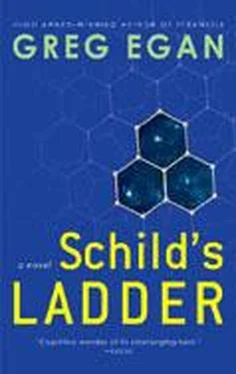
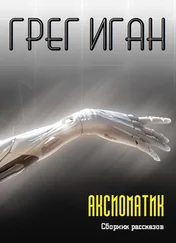
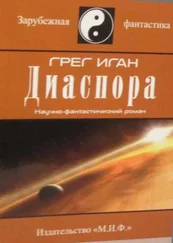
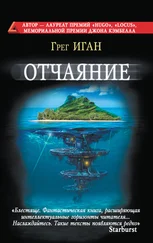

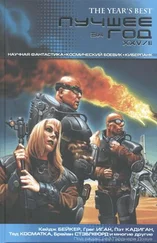


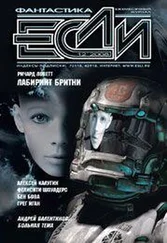

![Грег Иган - Рассказы [компиляция]](/books/419837/greg-igan-rasskazy-kompilyaciya-thumb.webp)
